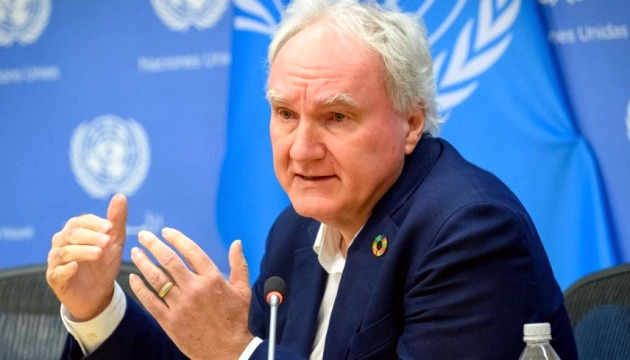Kherson and the neighboring frontline areas reflect both the resilience of the Ukrainian people and the extent of destruction caused by war. Humanitarian assistance and international support remain critically important for saving lives, restoring infrastructure, and aiding local populations.
This was stated by Matthias Schmale, the UN Coordinator in Ukraine.
He noted that Kherson was the first frontline city he visited when he began his work in Ukraine a year ago. Since then, the security situation has deteriorated, with more frequent missile strikes and drone attacks, Schmale observed.
“For me, Kherson is both a symbol of resilience and an example of the ongoing destruction,” he emphasized.
Schmale informed that last week he accompanied a humanitarian convoy that delivered medicines, hygiene kits, and water to the Kherson region, and visited a transit center where about 2,140 people have stopped in the last two weeks. He also pointed out that medical facilities, even those underground, provide services to pregnant women and psychological support to the affected.
“Unfortunately, Kherson is not an exception, and the need for humanitarian measures remains as urgent as ever. Due to constant assaults by the Armed Forces of the Russian Federation, residential buildings, schools, and hospitals across Ukraine are suffering,” the UN Coordinator in Ukraine stated.
He assured that the UN would continue its life-saving humanitarian support, but its effectiveness depends on international aid. At the same time, Schmale noted that humanitarian resources are dwindling, and without them evacuation teams may cease their operations, hospitals will not provide services, and families will be left without heating and water.
“With winter approaching, humanitarian needs will increase even further, and timely support will be crucial, especially in frontline areas... Until the sounds of air alarms cease, we must stand together and support the people of this country - in Kherson, Sumy, and across the nation,” Schmale urged.
